Middle East policy “lacks coherence”
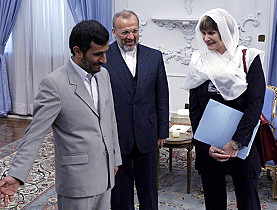
Switzerland needs to set priorities for its Middle East policy if it wants to achieve significant results in the area, a study has recommended.
Its author, Daniel Möckli, tells swissinfo that the government is on the right path despite frequent criticism from all sides. But it needs to gain the backing of its citizens to make its policy a success.
Swiss conflict resolution policy promotes dialogue with all parties, including militant Muslim groups, and attempts to bridge divisions between the region and the West.
Switzerland for example is currently the only western state that has chosen not to isolate the militant Palestinian Islamic Hamas movement.
Swiss Foreign Minister Micheline Calmy-Rey has suffered for some of her dealings with Iran, which included attending the signing of a controversial gas pipeline deal between Iran and a Swiss energy company in Tehran.
But the new study, Switzerland’s Controversial Middle East Policy, published by the Center for Security Studies in Zurich, aims to show that current Swiss policy will bring results over time.
swissinfo: Is there a consensus over the Swiss government’s Middle East policy?
Daniel Möckli: I don’t think there is a consensus. That’s the weakness of Swiss Middle Eastern policy. When you look at a country like Norway, which sometimes plays a similar role as a mediator in the Middle East, there is domestic backing.
In Switzerland, the domestic political landscape is highly polarised. Even in the cabinet there is no consensus as to what the Swiss should do. It’s also very difficult to have an ambitious policy if parliament is not 100 per cent behind it.
swissinfo: Have the Swiss failed in their diplomatic efforts in the region so far?
D.M.: The Middle East is the most complex conflict area in the world. So many conflicts are interlinked and it’s extremely difficult to resolve them. Switzerland has not had a big breakthrough yet but they have made important contributions.
The Geneva Initiative in the Arab-Israeli conflict is an important model for peace agreements. There has been success with regard to negotiations between Syria and Israel. I wouldn’t say that it has been a failure but sustainable conflict management is extremely difficult. It just needs time.
swissinfo: Is it possible for a small country like Switzerland to develop an autonomous diplomacy in a globalised world?
D.M.: There is a potential for them to act autonomously because the Swiss are not associated with colonial interests or colonial history, nor are they a power that can change the status quo in the Middle East.
Having said that, after September 11 and the war against terror, it has become more difficult for a small country to run an independent foreign policy because the European Union and the United States have joined forces in some cases to form a common Western policy. The United States gets irritated quickly if a country like Switzerland moves too far from this line.
swissinfo: The majority of Western countries have chosen to isolate or cut ties with Islamic movements in the region while Switzerland has chosen dialogue. Was this the right choice?
D.M.: I think it’s the right approach. Hamas, for instance, hasn’t become much weaker just by being isolated. It has become more radical. The Swiss quite rightly think that diplomacy is the only way to resolve that kind of complex problem. The fact that countries like France and even Israel are beginning to talk to Hamas actually points to the fact that the Swiss approach is quite a legitimate conflict resolution strategy.
swissinfo: Is Switzerland capable of playing an important role mediating between the West and the Muslim world?
D.M.: Switzerland has tried to build bridges between the West and the Islamic world. I think there are limits to this, quite simply because Switzerland is a part of the West. I think there is a potential but we should be aware that if we push it too far, we would irritate some people, particularly western nations.
swissinfo: How would you sum up Swiss policy in the region?
D.M.: I would think that the policy of engagement, talking to Hamas, Iran, [Lebanon’s] Hezbollah, is the right approach. Mediation efforts, working out model peace agreements, mediating between Iran and the US, that’s worth trying.
The problem is a lack of coherence. The Middle East is so complex that you have to pursue different objectives. They are all inter-related and that leads to tensions. You need to prioritise and I think Switzerland has not fully prioritised what it wants to accomplish in the Middle East. That’s the task for the future.
swissinfo, based on an interview by Abdelhafidh Abdeleli
Switzerland’s neutrality was recognised by the signatory states of the Vienna Congress in 1815.
As a neutral state Switzerland cannot enter military alliances unless it is attacked. Its forces can only be used for self-defence and internal security. It cannot take sides in international conflicts and cannot give right of transit to foreign forces.
But neutrality does not prevent Switzerland from supporting humanitarian efforts in conflict situations worldwide.
Good offices are initiatives taken by a third party to stop litigation or make contact easier between two conflicting parties. More generally it refers to any initiative or contribution that encourages peace and international cooperation.
As a neutral country, Switzerland has made good offices one of the pillars of its foreign policy. These can take different forms, for example organising international conferences, representing the interests of a foreign state and playing host to international organisations.
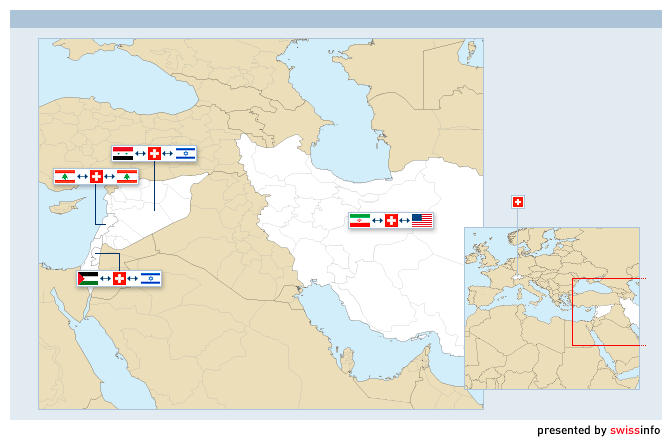

In compliance with the JTI standards
More: SWI swissinfo.ch certified by the Journalism Trust Initiative
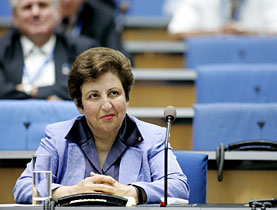
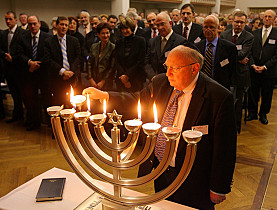
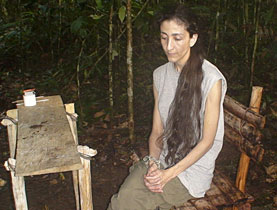
You can find an overview of ongoing debates with our journalists here. Please join us!
If you want to start a conversation about a topic raised in this article or want to report factual errors, email us at english@swissinfo.ch.